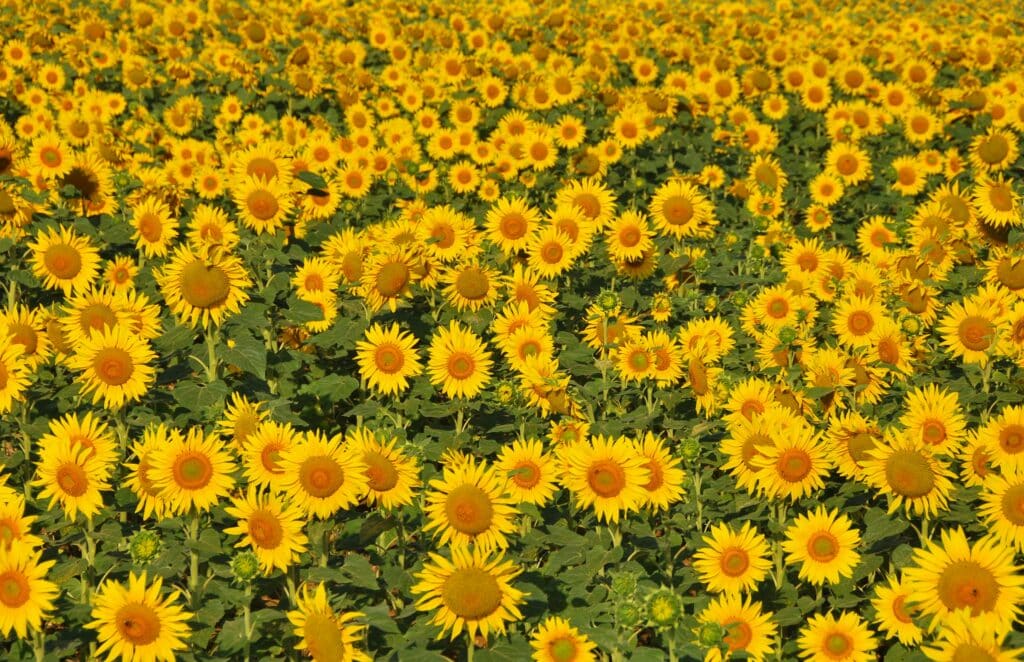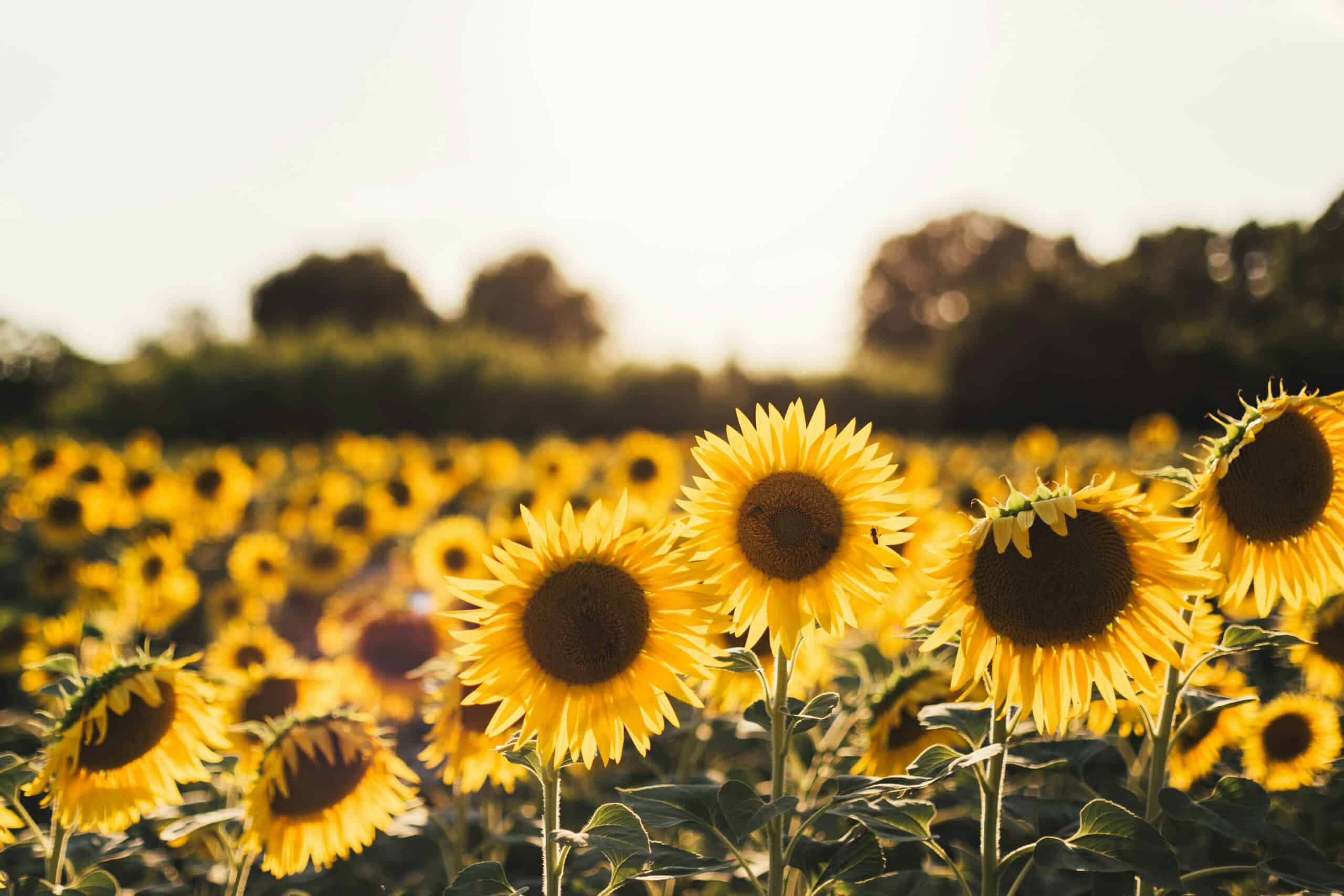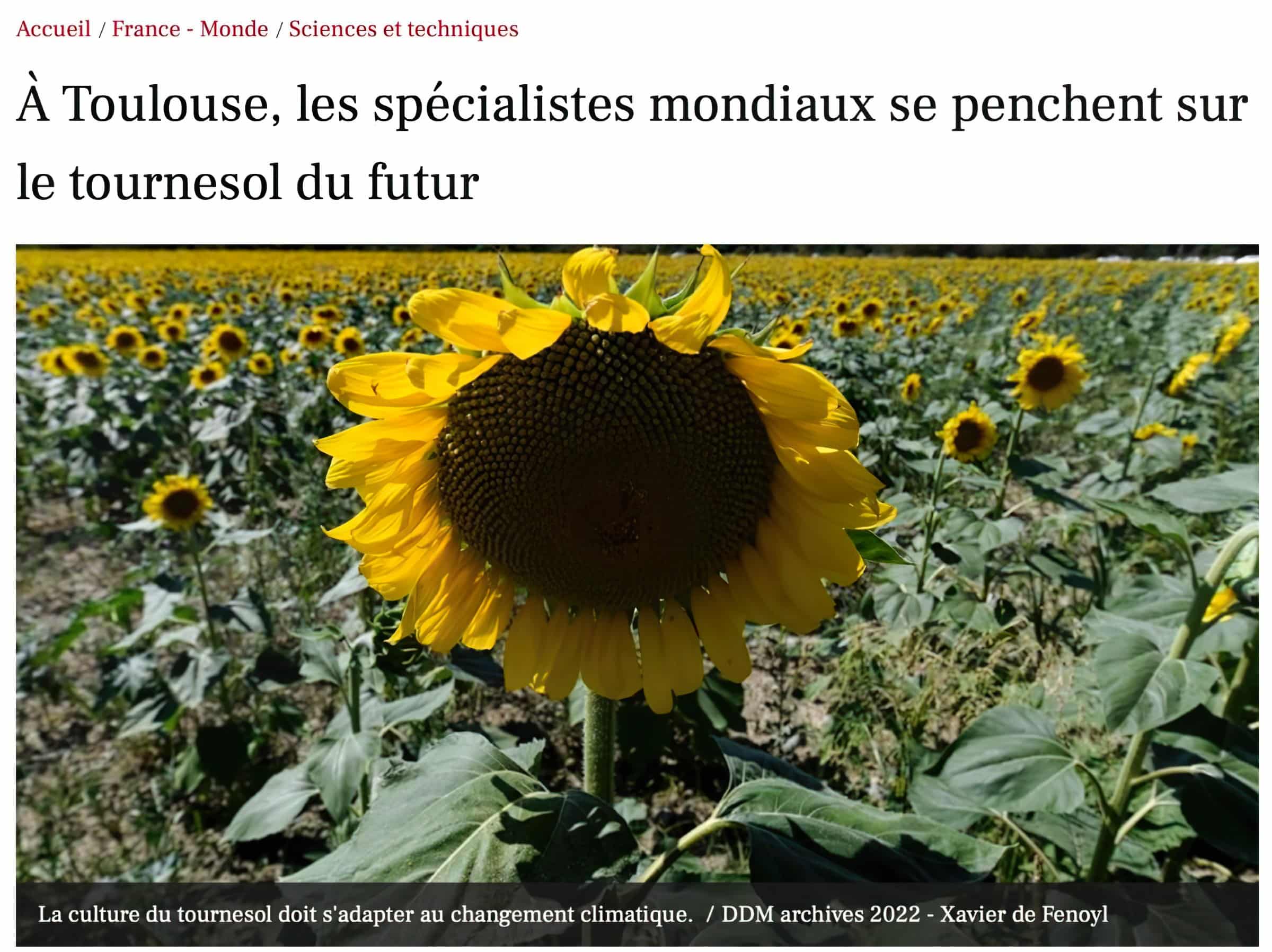In a world where climate change is radically reshaping our ecosystems and agricultural practices, the sunflower (Helianthus annuus) is emerging as a crop of the future. Adapted to dry conditions and able to withstand high temperatures, it is increasingly at the centre of agricultural research, particularly in Europe, to meet today’s climatic challenges.

A legacy of resilience
Native to the semi-arid regions of North America, the sunflower has a natural ability to cope with drought. Its deeply rooted structure allows it to use soil water efficiently. At the same time, its leaves can reduce water loss by closing their stomata during the hottest periods. These characteristics make sunflowers particularly suited to areas affected by drought and heat waves. These phenomena are expected to increase with climate change.
Challenges and prospects
Despite its many qualities, the sunflower faces challenges. Reductions in biodiversity due to intensive farming practices and climate change require continuous adaptation of sunflower varieties. The focus is on developing varieties that are more tolerant to extreme temperatures and able to maintain high production in unfavourable climatic conditions.
Research and innovation challenges
The aim of the research is the selection of varieties adapted to extreme climatic conditions and efficient pollination during periods of intense heat. In this context, the HelEx project is using wild varieties to find genes that could give sunflowers additional resistance to heat and drought.
The objective is to optimise sunflower production, not only in terms of yield, but also in terms of seed and oil quality. Sunflowers play a key role in supporting pollinator populations, particularly bees, which are essential for biodiversity and agricultural production. With climate change, pollination has become a major concern. Improving the pollen and nectar production of sunflower varieties could enhance the presence and effectiveness of pollinators, even during periods of water stress or high temperatures.
The sunflower fits into the vision of sustainable agriculture promoted by the European Green Deal. In addition to its natural resistance to difficult climatic conditions, the sunflower maintains biodiversity and ecosystem services. It’s not just a source of oil and protein, it’s also a significant support for pollinators and, by extension, the broader agricultural landscape.


